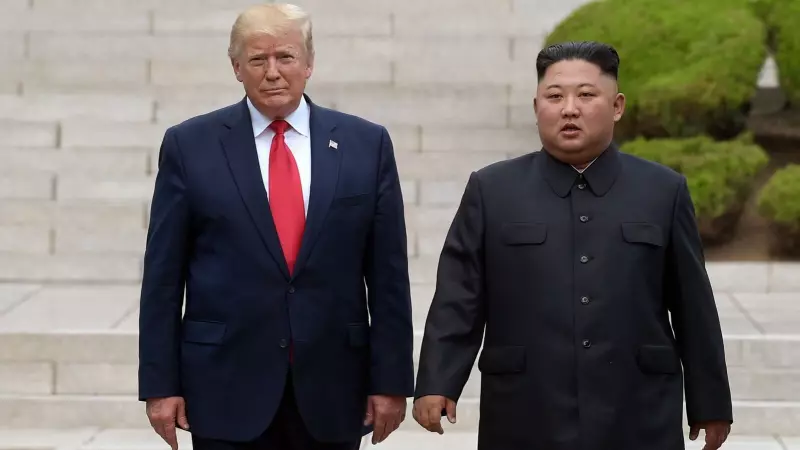
In a significant development that could reshape Asian geopolitics, former US President Donald Trump has expressed openness to meeting North Korean leader Kim Jong Un during his ongoing tour of Asia. This potential encounter marks what would be their first face-to-face interaction since Trump left the White House in 2021.
The Unfinished Business of Trump-Kim Diplomacy
The relationship between the two leaders has been nothing short of dramatic. Their 2018 Singapore summit made history as the first-ever meeting between sitting leaders of the United States and North Korea. However, their 2019 Hanoi summit collapsed without agreement, leaving nuclear negotiations in a stalemate that persists to this day.
Trump's current Asian itinerary, while primarily focused on political engagements and promoting his potential 2024 presidential bid, now carries the weight of possible diplomatic breakthrough. Sources close to the former president indicate he remains convinced of his unique ability to negotiate with the reclusive North Korean leader.
Regional Implications and Global Attention
The prospect of renewed Trump-Kim talks has sent ripples across international diplomatic circles. Asian allies, particularly Japan and South Korea, are watching developments closely, given North Korea's advancing nuclear capabilities and frequent missile tests throughout 2023.
Key concerns among regional partners include:
- The potential impact on existing sanctions against North Korea
- Possible shifts in the delicate security balance on the Korean Peninsula
- Implications for US commitment to regional allies
- The effect on ongoing diplomatic efforts by current administration
A Complicated Legacy of Summits
Trump's previous engagements with Kim Jong Un were marked by both historic breakthroughs and significant setbacks. While the Singapore summit produced a vague commitment to denuclearization, substantive progress remained elusive. The Hanoi collapse revealed fundamental disagreements over sanctions relief versus concrete disarmament steps.
Analysts note that any new meeting would occur under dramatically different circumstances. Trump now operates as a private citizen while preparing for another presidential run, raising questions about his authority to negotiate on behalf of the United States.
The Current Administration's Stance
The Biden administration has maintained a firm position on North Korea, emphasizing the need for complete denuclearization before considering sanctions relief. White House officials have been cautious in their response to Trump's potential meeting, reiterating that official US policy remains unchanged.
However, some experts suggest that backchannel communications might welcome any opportunity to reduce tensions, given the stalemate in formal negotiations and North Korea's continuing weapons development.
What This Means for Asian Security
The timing of this potential meeting comes amid heightened military activities in the region. North Korea has conducted multiple missile tests this year, while US-South Korea military exercises have expanded in response. Any diplomatic movement, even through unofficial channels, could potentially ease current tensions.
Regional observers are particularly interested in:
- Whether Trump can deliver any concrete commitments from North Korea
- How China might respond to renewed US-North Korea engagement
- The impact on inter-Korean relations
- Potential confidence-building measures that could emerge
As Trump continues his Asian tour, all eyes remain on whether this proposed meeting will materialize and what it might achieve in breaking the long-standing deadlock in Korean Peninsula diplomacy.





